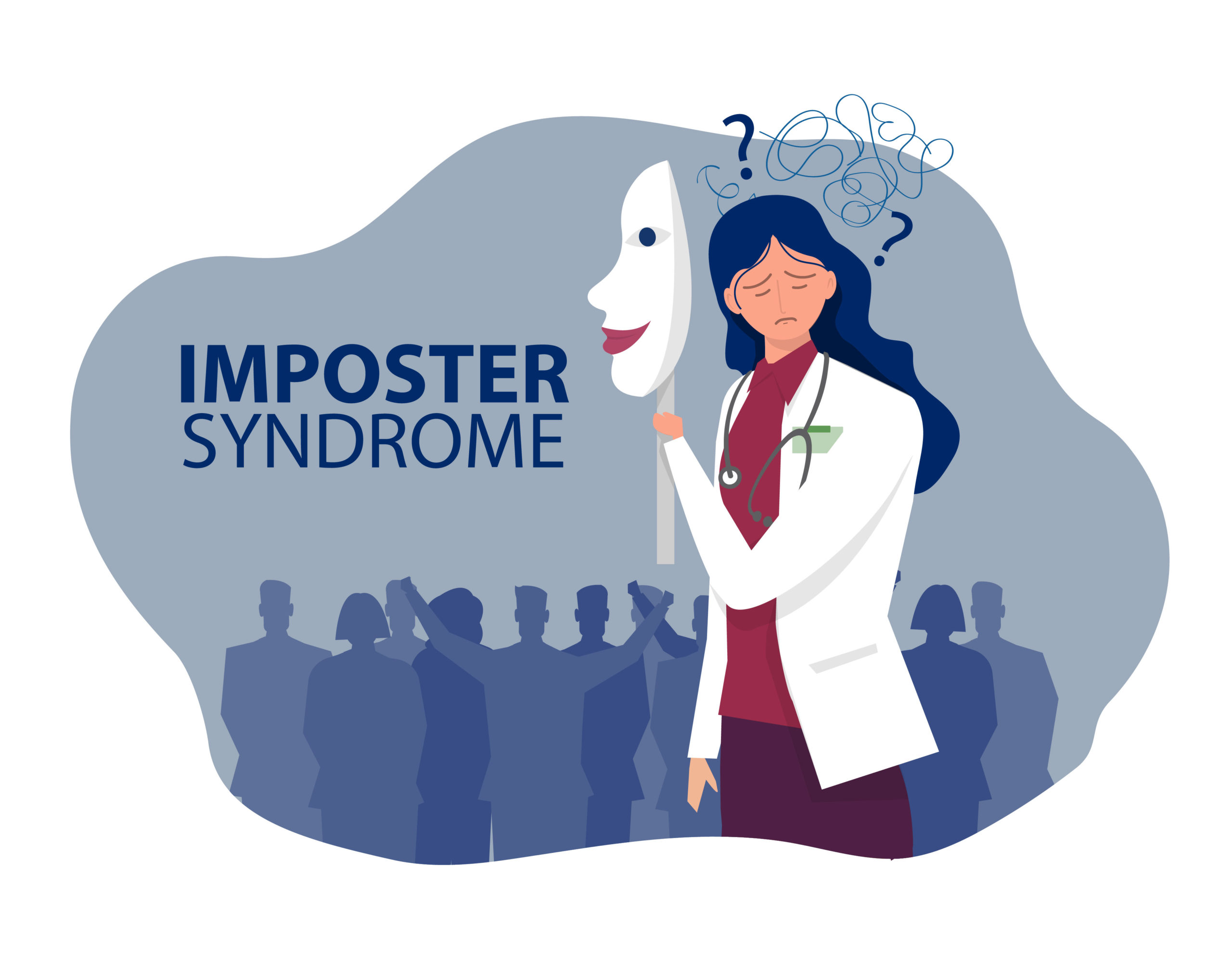Can’t shake the feeling that you’re unworthy of your role or falling short of the mark as a physician? Impostor syndrome is common among doctors, and it can be debilitating, leading to dissatisfaction with your job, burnout, anxiety and other issues that impact your well-being. The good news is you can overcome it — here’s what you need to know.
Understanding Impostor Syndrome
Physicians may be more likely to experience intense professional self-doubt by virtue of who we are. Knowing mistakes can cost lives, we have a tendency to be perfectionists — and perfectionism goes hand-in-hand with impostor syndrome. When a mistake or oversight inevitably occurs, self-doubt creeps in.
Many doctors begin to experience impostor syndrome in medical school, particularly if they attend a prestigious school. I certainly felt out of place when I attended the University of Cambridge: In my mind, this was a place attended by the elite of British society — so why did they accept me? That feeling never really went away, and when I began practicing medicine, it transferred over to my professional life.
Underrepresentation is another contributing factor. Research has shown that women who work in professions where innate talent (or “brilliance”) is a marker of success are more likely to feel undervalued, disrespected and a lack of acceptance, resulting in impostor syndrome symptoms. However, it has become clear that systemic bias and exclusion are the root cause — so our notion that impostor syndrome is an individual problem is quickly becoming outdated.
Dealing with Impostor Syndrome
While systemic change will be essential to reducing impostor syndrome among physicians, there are things you can do on a personal level to overcome a pattern of self-doubt.
A first step if you’re feeling inadequate is to confide in someone who’s in your corner. When someone else acknowledges that you could be dealing with impostor syndrome, it validates your feelings. Plus, it’s likely that they will remind you of your strengths, which can help boost your confidence.
It may sound contradictory, but you can also turn to someone you trust for constructive criticism. When I was struggling with impostor syndrome, a colleague observed that I would often be confident and animated in one-on-one discussions, but hesitant to share ideas in a larger group — and they were right! Even when I spoke up, there was a hesitance to what I was conveying. As a result of this, my coach at the time suggested I try emulating the people I admired in meetings, and it was a game-changer. Turning to a trusted colleague can also be helpful if you’re not sure about taking on new responsibilities or applying for a job.
Another helpful exercise you can do on your own involves examining your feelings. When I was dealing with an intense lack of confidence, I wrote out all the times I had doubted myself and what caused me to feel that way in each instance. Was there anything I did or said that gave weight to that feeling? Exploring how I felt in those moments of self-doubt was eye-opening: When I think something, I feel it, and when I feel something, I act it out. Recognizing the cycle helped me break it.
Lastly, never underestimate the value of celebrating your skills and accomplishments to help reinforce your confidence. The more you trust in your abilities, the easier it will be to bounce back. That voice of doubt might creep in when you make a mistake or someone isn’t happy with your work, but it won’t overwhelm you.
How Coaching Helps with Impostor Syndrome
Coaching helps you examine beliefs, examine the root of your feelings and reframe thoughts to help support your growth — so it’s not surprising it can be highly effective for overcoming impostor syndrome.
Before I began to work with a coach, my confidence was a fragile shell. The slightest hint of criticism could shatter my sense of worth, confirming the self-doubt that was driving my impostor syndrome. I certainly never felt confident enough to seek out opportunities. Even when a colleague suggested I apply for a job or network with senior leaders, I felt I’d be making a fool of myself if I went for it.
Through coaching, I learned how to face up to my own dismissiveness. When I spoke well of my accomplished colleagues but diminished my own skills and abilities, my coach reminded me that “comparison is the thief of joy.” She probed into where these thoughts and beliefs about my abilities were coming from, digging for evidence, such as complaints or feedback from my residents. Spoiler: There was none.
As doctors, we spend our lives looking for evidence to back up our diagnoses — so tap into that for your own well-being. As you seek out evidence-based information about your abilities, challenge doubtful feelings and limiting beliefs, and surround yourself with people who recognize your strengths, you’ll be able to shed the self-doubt that drives impostor syndrome.


